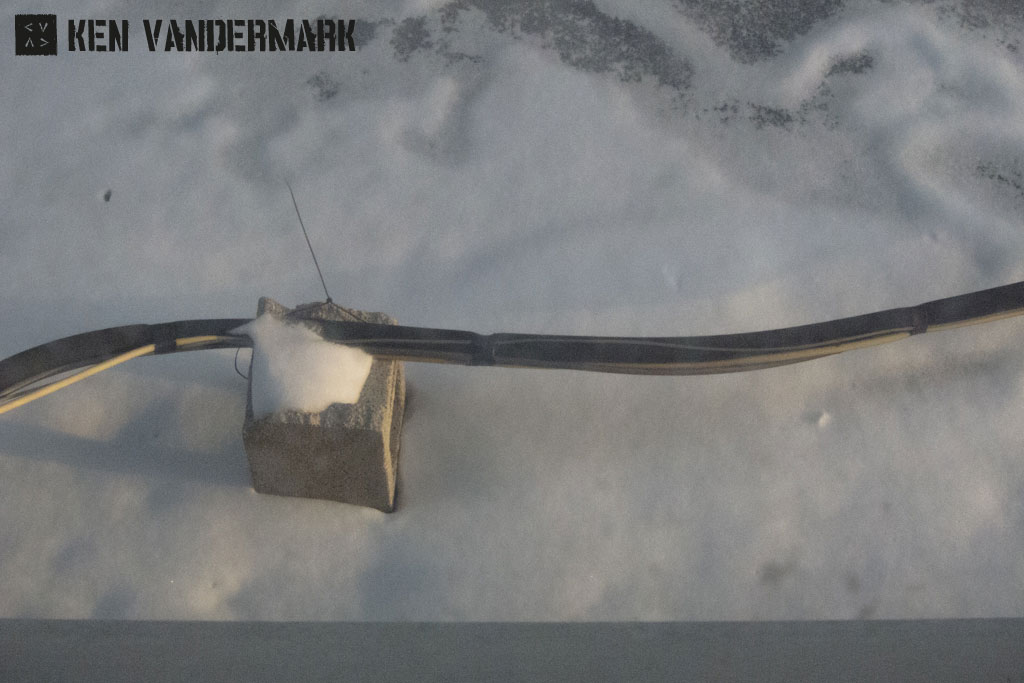

DR: Going back to Paul Lytton, wasn’t it a conversation you had with him were he talked about the ‘sacrifice’ of jettisoning jazz…?
KV: Yes, this was a very telling moment in my life as a musician. A few years ago Paul and I were doing a large group project in Portugal and in celebration afterwards we were working very hard finishing a bottle of scotch with another musician, and the conversation became very esoteric; very long and involved. And at some point Paul looked at me very directly and said, ‘You know, we really loved this music and we had to turn our back on it and move somewhere else…and that was really difficult, a challenge, and hard to give up something that we really loved – what are you going to do?’ And even in my haze, it was like OK, it’s been thrown down…that’s the big question. It’s stuck with me ever since then, and I’ve thought about it constantly in terms of the work I do, the projects I choose and the people I work with. What am I going to possibly try to contribute? And it’s not just a question of being schooled in possibilities or studying certain things. Sooner rather than later one has to make big decisions as a musician, and Paul summed this up in two sentences; it was a powerful and tense experience.
DR: Thinking about tradition and freedom, and following up on that, I remember a concert at the Vortex here in London with your trio, and here you presented what might be seen by some as a very conventional format. In that the pieces had a ‘head’ and a set of solos and back again – classic ABA form in a sense, but you had given it a fresh perspective. Many musicians would say ‘well, you can’t go back to that’ But it seemed that you were actively exploring and relishing this re-examination…
KV: This issue of freedom is what attracted me to this music in the first place. I remember seeing bands play, say, four nights in row, and as a twelve year old kid, remember thinking: hang on they’re playing the same pieces but it’s completely different. And really since then I was attracted to this music with the issue of being able to reinvent from night to night, which is obviously a high bar to reach, and it creates different levels of creativity. But this dialectic between improvisation and composition really does fascinate me. When I use the word composition I should be clear, I’m calling composition something that is pre-described, pre-directed, or notated ahead of time. There are, of course very good arguments for improvisation to be seen as an act of composing, or equivalent to composition, which it is. This thing of pre-determined materials, let’s say, versus, spontaneous materials and the tension between those things is a very interesting thing to wrestle with. We’re getting to a point in all this music where things are beginning to codify. And that is why I’m so fascinated with the situation in Europe in the late 60s where the severe codification of American jazz resulted in this radicalism, which ended up with all these sets of different information scattered around Europe. Myself, I see music being performed, whether it’s in the States or over here, with people playing written material and they are not challenging structure, they’re not challenging form. So that ABA form you are talking about, in that particular group, there are many different elements that are to be arranged form from evening to evening; so it’s never ABA the same…so the musicians are having to, in the moment, get from A to B and on to wherever else differently…but very frequently the standard form – say where you have a ‘head’ and then an improvisation and then return back to the ‘head’ or theme, like a cycle, which is quite effective –can become taken for granted. Why are we still using that form? You know, I don’t understand that limitation. What other forms are there?? Some of them totally fail, but you have to explore and deal with that. And totally free improvisation is also quite problematic – but there is a history there too. And at the time that decision to break away from American jazz, the choices necessary to make that break are unbelievably severe. And with Paul Lytton talking about the intensity of that time, you’d get things like, [accusingly] “you played a minor third. That’s a cop-out.” [laughter] You know that’s so over my head, the kind of intensity that took that thing apart. It led to a whole other set of languages – Now it has a history and now you have schools of playing where people are still saying those kinds of things but the level of freedom that it entails for people of my age are different – they are students of that approach and can’t know what was necessary to happen at that time like those players do. Some of them are here tonight so they can express it much better than I can…but I think schools of thought in some cases wipe themselves out. So it’s very exciting now in this respect, because now is the time for radicalism – and I think this fits politically, socially, ecologically, and artistically. We are really arriving at a point where unless we make some real strong choices about what we are going to do, what we are going to turn our back on in order to do something new, then the whole thing simply coasts along, and people my age need to make certain choices to find our own intensity.
© 2024 Ken Vandermark – musician & composer | Disclaimer